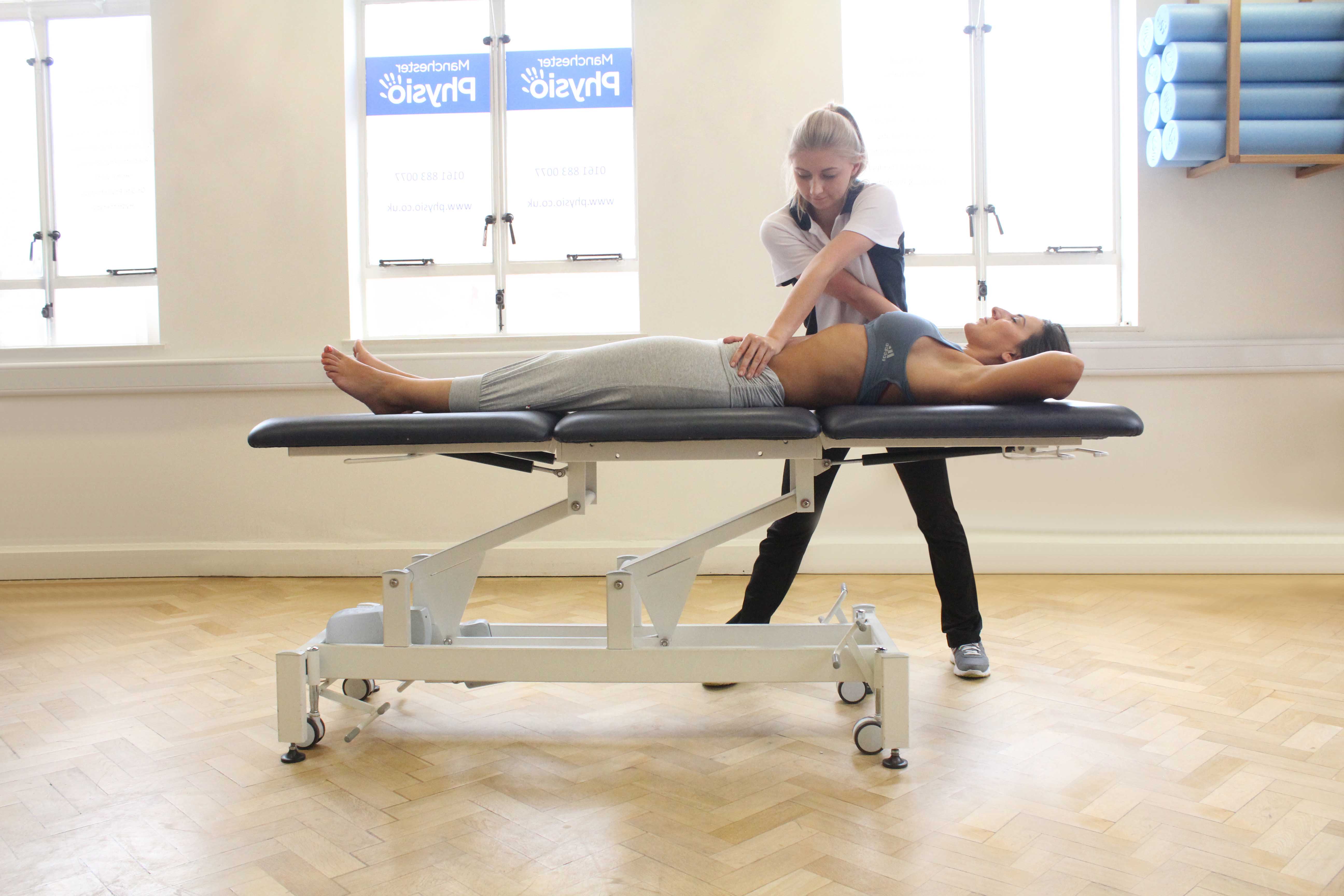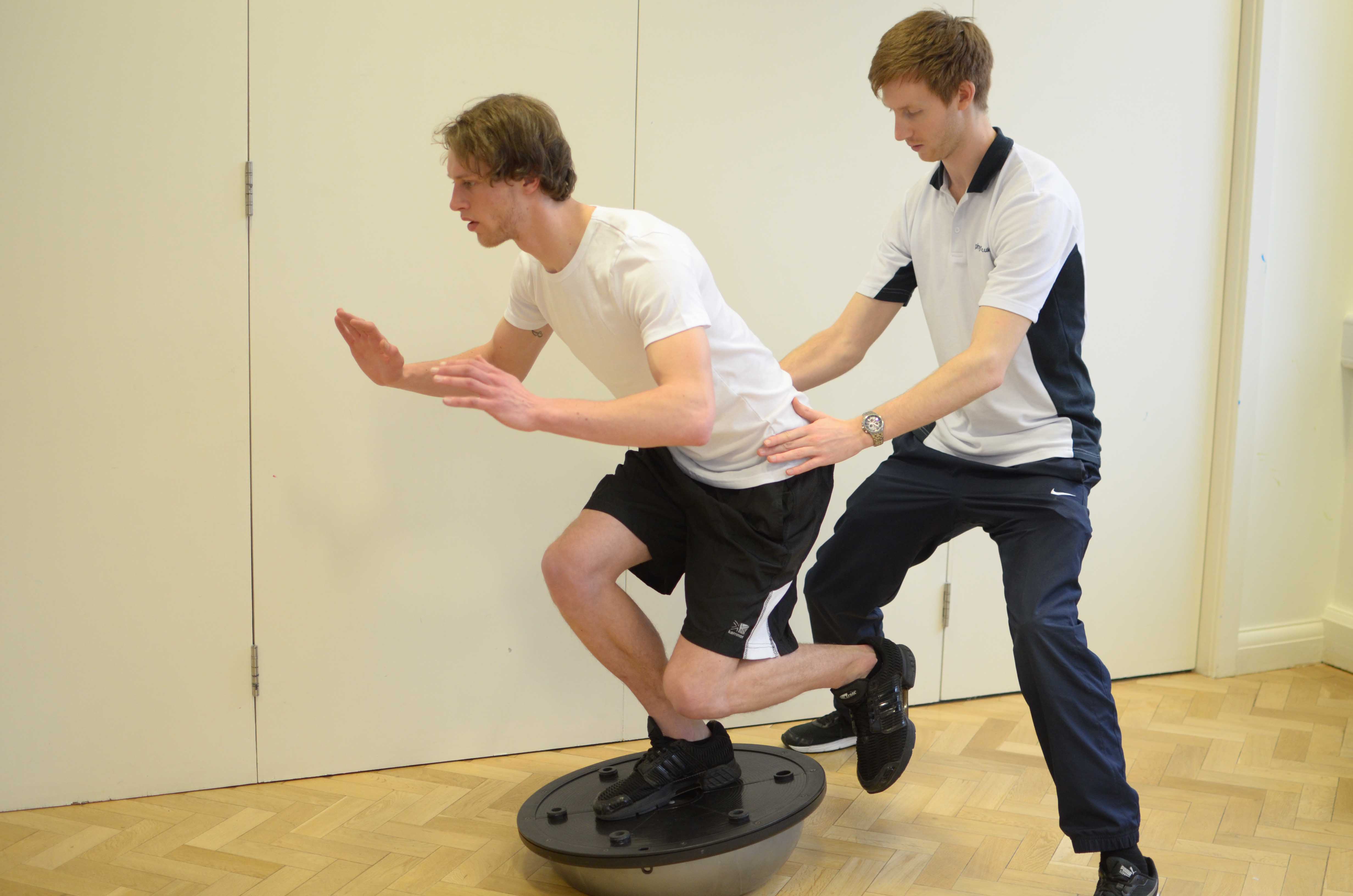What is pelvic pain?
Pelvic pain is any pain experienced in the pelvic area. Pelvic pain can either be acute lasting less than three months or chronic which persists for more than three months. Physiotherapy is an important treatment for pelvic pain.
 Above: Passive stretch of the muscles and connective tissues of the hip and pelvis by specialist therapist
Above: Passive stretch of the muscles and connective tissues of the hip and pelvis by specialist therapistHow does pelvic pain occur?
Pelvic pain is a broad term that can include many different conditions. Possible causes of pelvic pain include:
- Bladder and bowel problems
- Sacroiliac joint disorder
- Symphysis pubis dysfunction
- Weak pelvic floor muscles
- Hypermobility syndrome
- Ectopic pregnancies
What are the symptoms of pelvic pain?
The main symptom of pelvic pain is pain and discomfort around the pelvic area. You may notice local swelling and bruising due to damage to the tissues. It is possible for pelvic pain to affect your activities of daily living and you may find you find it more difficult to climb stairs or walk long distances. Other symptoms include:
 Above: Passive stretch of the muscles and connective tissues of the hip and pelvis by specialist therapist
Above: Passive stretch of the muscles and connective tissues of the hip and pelvis by specialist therapistWhat should I do if I have pelvic pain?
It is important for you to obtain a professional diagnosis of your pelvic pain to decide on the best possible management. This may involve having a series of tests which could include X-rays, CT or MRI scans to identify the exact location and cause of the problem. You will then be able to begin a course of physiotherapy treatment to help you return to your normal active lifestyle.
Physiotherapy treatment for pelvic pain.
You will receive a combination of physiotherapy treatments depending on your symptoms. Potential physiotherapy options include a home exercise programme, joint mobilisations and electrotherapy. Other treatments include:
 Above: Progressive strengthening hip exercises supervised by experienced therapist
Above: Progressive strengthening hip exercises supervised by experienced therapistWhat shouldn’t I do if I have pelvic pain?
Do not ignore your symptoms if you suspect you may have pelvic pain as this could make your condition worse. This will delay your recovery and could create long-term complications.
Could there be any long-term effects from pelvic pain?
The length of your recovery will depend on the exact cause of your pelvic pain. If you receive a professional diagnosis as soon as you notice any symptoms and begin a physiotherapy programme as soon as possible, you will optimise your recovery and be able to return to your normal activities of daily living.
 Above: Progressive strengthening hip exercises supervised by experienced therapist
Above: Progressive strengthening hip exercises supervised by experienced therapistTo arrange a physiotherapy appointment call Physio.co.uk on 0330 088 7800 or book online.

 0330 088 7800
0330 088 7800

































